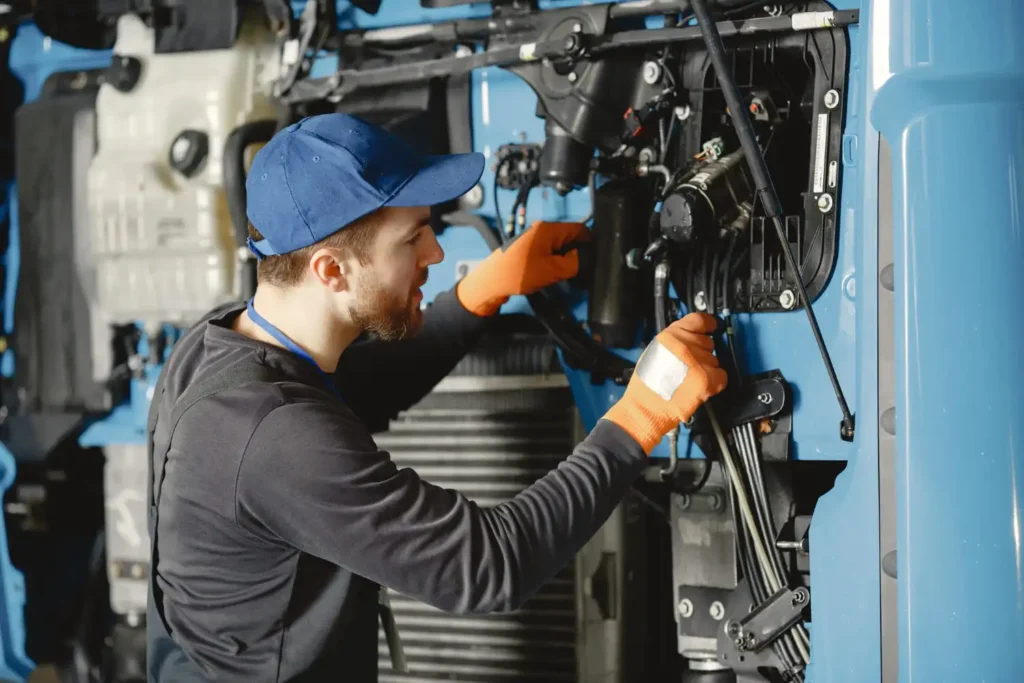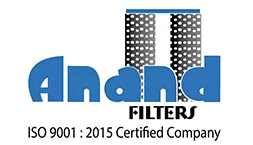
Oil-Free vs Oil-Injected Screw Compressors: Oil Separator Implications & Filter Technology
Screw compressor oil separators are vital to the efficiency, reliability, and regulatory compliance related to air quality of modern industrial processes. A screw compressor is a kind of compressor that generates compressed air by rotating a pair of screw rotors within a sealed cavity. In present times, every industrial facility, including those in the food and pharmaceutical industries, uses a screw compressor as the industry standard for manufacturing compressed air.
The differences in design, as well as filtration and separation requirements, define the difference between oil-free and oil-injected screw compressors.
Compressors that use oil-inject lubrication oil to improve operating performance, but some oil commonly mixes into the compressed air. Oil-free screw compressors, on the other hand, are designed to operate in industries that have strict purity requirements. Oil-free screw compressors also have specialized designs that contain oil contamination and provide ISO Class 0 certification.
Understanding Oil Separation in Screw Compressors
An oil separator for a screw compressor is a tank that has a filtration media inside that separates the compressed air from any oil mist or aerosols through gravity and coalescence.
Large droplets are filtered out of the compressed air and redirected to the lubrication system of the compressor. An oil separator is critical in delivering clean compressed air and protects subsequent equipment from oil contamination, which also reduces contamination of the downstream air to maintain the integrity of finished products.
By separating the oil mist and oil droplets, and cycling the oil back into service within the system and downstream processes, the air compressor oil separator provides clean compressed air. Inadequate removal of oil carryover can negatively impact sensitive equipment, increase operational costs, and degrade product quality.
Oil-Injected Compressors & Separator Needs
To supply lubrication, cooling, and sealing, oil-injected compressors introduce lubricating oil (such as screw compressor oil) into the compression chamber during operation. While the oil film increases efficiency and reduces wear on the mechanical components of the unit, it inherently introduces oil contamination into the compressed air.
Oil vapors and trace oil contamination cannot be sufficiently removed by multi-stage filtration systems (such as oil separators and activated carbon filters), even when they help remove oil droplets.
High-efficiency filtering typically maintains the quality of compressed air at a level of approximately 0.01 mg/m³ in oil content. There is a potential for contamination because filters generally test the airflow in the center of the filter media (B2 testing), which does not capture all oil residue/sludge that may stick to pipe walls or vapors.
Oil filter manufacturers have played a crucial role in designing separators and filters that promote longer compressor life and enhance compressor efficiency. They supply highly efficient air compressor filter units, as well as specialized air compressor oil separator units, designed to meet the needs of specific industries.
Oil-Free Compressors: How They Change Filtration Needs
Oil-free compressors eliminate the need for a screw compressor oil separator by removing the requirement for continuous oil lubrication.
Oil-free air compressors either use different materials to protect the mechanism without lubrication or have no mechanical contact inside the compression chamber.
To maintain the mechanism functioning correctly, most oil-free compressors utilize additional materials, such as water or a Teflon coating, to prevent wear and tear. Proper sealing prevents oil from contaminating the compressed air, as the lubrication of the bearings and gears occurs outside the compression chamber.
The result is an entirely oil-free air supply. Specific oil-free designs have even eliminated metal-to-metal contact in the compression chamber, so there will no longer be a requirement for oil-based or synthetic lubrication.
These environmental and cleanliness advantages often lead to additional cost savings, which can ultimately reduce your total cost of ownership. Even though they are oil-less, the compressors still feature high-quality air compressor filter systems. Airborne pollutants, dust, and grit can enter the compressor system, harming machinery or reducing the quality of the final product.
Comparing Oil-Free vs Oil-Injected Systems
Several key differences highlight the distinction between oil-free and oil-injected compressors.
Contact with Oil:
- As the name suggests, oil-free air compressors do not contain oil in the compression chamber. Instead, two stages of compression and teflon-coated screw components generate compressed air with no regard for air quality.
- On the other hand, oil-injected air compressors lubricate the moving parts with oil, resulting in a reliable mechanical operation. In addition to cooling the element, oil acts as a sealer and does not cloud the air stream with impurities.
Care and Maintenance:
- Air compressor maintenance is a crucial consideration when selecting the type of compressor to purchase. In your oil-free model, there is no requirement to stock large amounts of oil or oil filters, oil separators, etc. [Almost every oil-free compressor is lower maintenance.]
- On the contrary, an oil-lubricated compressor requires higher maintenance and is dependent on the effectiveness of the variable circuit in the lubrication system, such as oil changes and lubrication system cleaning.
Environmental:
- Environmental cleanliness may be an issue due to oil carryover from an oil-injected system, particularly when a dependable air compressor oil separator is not in place.
- Oil-free systems are less susceptible to oil contamination, eliminating the need for a carbon filter, but they may require adjustments as part of regular maintenance procedures.
Emerging Trends in Oil Separator Technology
Advancements in screw compressor oil separator systems will truly change the future of industrial compressed air. There may now be more emphasis on efficient and dependable compressed air systems in the industrial marketplace than at any point in history.
For decades, screw air compressors, which are well-established in the industry, have been considered to provide the most reliable performance over the longest duration of time. Advancements in technology over the past several years have significantly enhanced screw air compressors in multiple facets, including capability and energy efficiency.
The developments surrounding Industry 4.0 and IoT (Internet of Things) technology have enabled the sophisticated deployment of intelligent monitoring systems in screw air compressor systems. Smart monitoring systems achieve this by tracking performance and forecasting maintenance needs in real time. The monitoring systems utilize the available data on compressor performance and operation to alert.
Intelligent monitoring systems have revolutionized the way industrial operators manage air compression systems, providing detailed, real-time data on the performance metrics of these systems, as well as the means to diagnose machine performance issues remotely. Armed with real-time data and performance indicators, operators can better plan maintenance and diagnostics, thereby maximizing compressor efficiencies remotely.
Applications Across Industries
Different industries have different needs for air purity, and therefore, the screw compressor oil separator and the air compressor filter become essential.
- Pharmaceuticals: Sophisticated systems and oil-free compressors provide a production process that is free from contamination.
- Manufacturing: The manufacturing industry is one of the largest markets for screw air compressors. These compressors power many of the tools and processes that run manufacturing lines and daily operations.
- Food & Beverage: The food and beverage industry has particular needs, particularly around clean air and hygiene standards. The sector utilizes oil-free units for several reasons.
- Construction: The construction industry requires equipment that is both trustworthy and productive, and much of that equipment relies on compressed air. These compressors supply the air that is needed to run these tools efficiently.
Conclusion
To determine the best compressor system, it is crucial to understand the differences between oil-free and oil-injected compressor models, as well as their respective separation and filtration requirements.
An oil-injected screw compressor relies on a high-quality air compressor filter and a highly efficient screw compressor oil separator to achieve the minimum amount of oil carryover, optimal efficiency, minimal backpressure, and excellent air quality, thereby meeting code, quality, or other requirements. An oil-free compressor reduces the need for oil separation, yet still benefits from advanced air compressor filter technology, providing dust-free, pure air.
Meanwhile, oil filtration manufacturers have been innovative with new products, including unique air compressor oil separator applications, sophisticated monitoring systems, environmentally friendly designs, and product options tailored to various industries.

